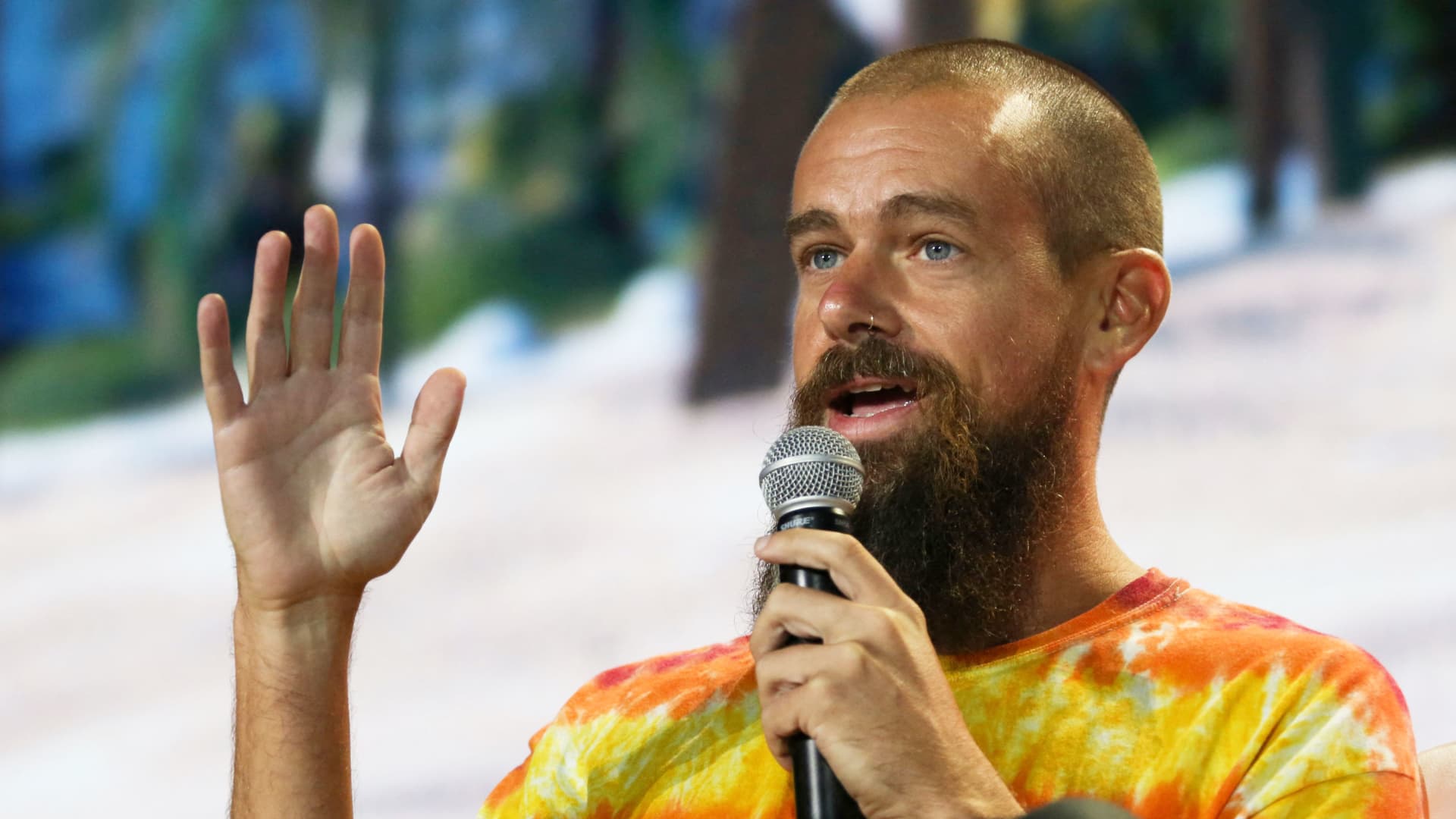
Jack Dorsey says he has regrets about the social media giant he co-founded.
Dorsey, who announced plans to leave Twitter in November, recently tweeted that he feels guilty about the role the company has played in creating a centralized internet, where a small handful of companies and platforms claim an outsized proportion of users and their data. With 217 million daily users, Twitter certainly qualifies as one of those platforms, along with other tech giants like Meta, Alphabet and Amazon.
“I realize I’m partially to blame, and regret it,” Dorsey wrote in his April 2 tweet.
The rueful admission comes amid Dorsey’s attempts to extricate himself from Twitter: He stepped down as the company’s CEO last year, and will leave its board of directors next month.
In his tweet, Dorsey referenced a few nostalgic elements from the early days of the internet, including online public bulletin board and discussion network Usenet, text-based chat platform Internet Relay Chat (IRC) and email encrypted with the Pretty Good Privacy (PGP) software program.
Dorsey called those types of features “amazing” and lamented that “centralizing discovery and identity into corporations really damaged the internet.” Twitter is one example of internet centralization: It’s a popular source of information and news at least partially because hundreds of millions of users already have accounts.
Similarly, Alphabet-owned Google captures more than 90% of the online search market, according to StatCounter. Research from eMarketer shows that roughly 64% of all digital ad spending going to Amazon, Facebook and Google.
Dorsey has said before that he regretted not having a plan for how Twitter’s growth could affect the way people use the internet and share information online. The company was founded, in part, as a way to “decentralize” information sources online by allowing a wider range of people to connect and share posts, Dorsey noted in 2019.
A year later, Dorsey told The New York Times that a lack of foresight by Twitter’s founders, including himself, meant they weren’t prepared for the effects of seemingly small decisions — like including “like” counters on tweets, which he said incentivized “the most salacious or controversial tweets.”
Dorsey, who ran Twitter from 2006 to 2008 and again from 2015 to 2021, has also argued that the platform should be more transparent about how it displays and promotes tweets by publishing its algorithms. Such a move could be gaining popularity inside the company: Last month, billionaire and new Twitter board member Elon Musk tweeted that Twitter’s algorithms should be “open source.”
Publishing Twitter’s algorithms could have a side-effect that Dorsey might like: People would be able to create their own versions of Twitter, and communicate across all of them, potentially encouraging a less centralized internet. It’s even possible that such a result is the primary goal for Dorsey, who launched a team at Twitter called Bluesky in 2019 to research long-term decentralized standards for social media.
Bluesky’s leader was none other than Parag Agrawal, who was then Twitter’s CTO and is now the company’s CEO. And with Musk now getting included in Bluesky’s direction, according to Reuters, Dorsey’s vision of decentralized social media is unlikely to diminish once he leaves Twitter’s board — potentially helping ease some of those regrets about the internet landscape he helped create.
Sign up now: Get smarter about your money and career with our weekly newsletter
Don’t miss:
Here’s how much power Elon Musk actually has at Twitter now — and what he might do with it
Twitter’s new 37-year-old CEO went from Twitter engineer to CEO in just 10 years





